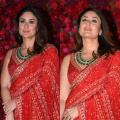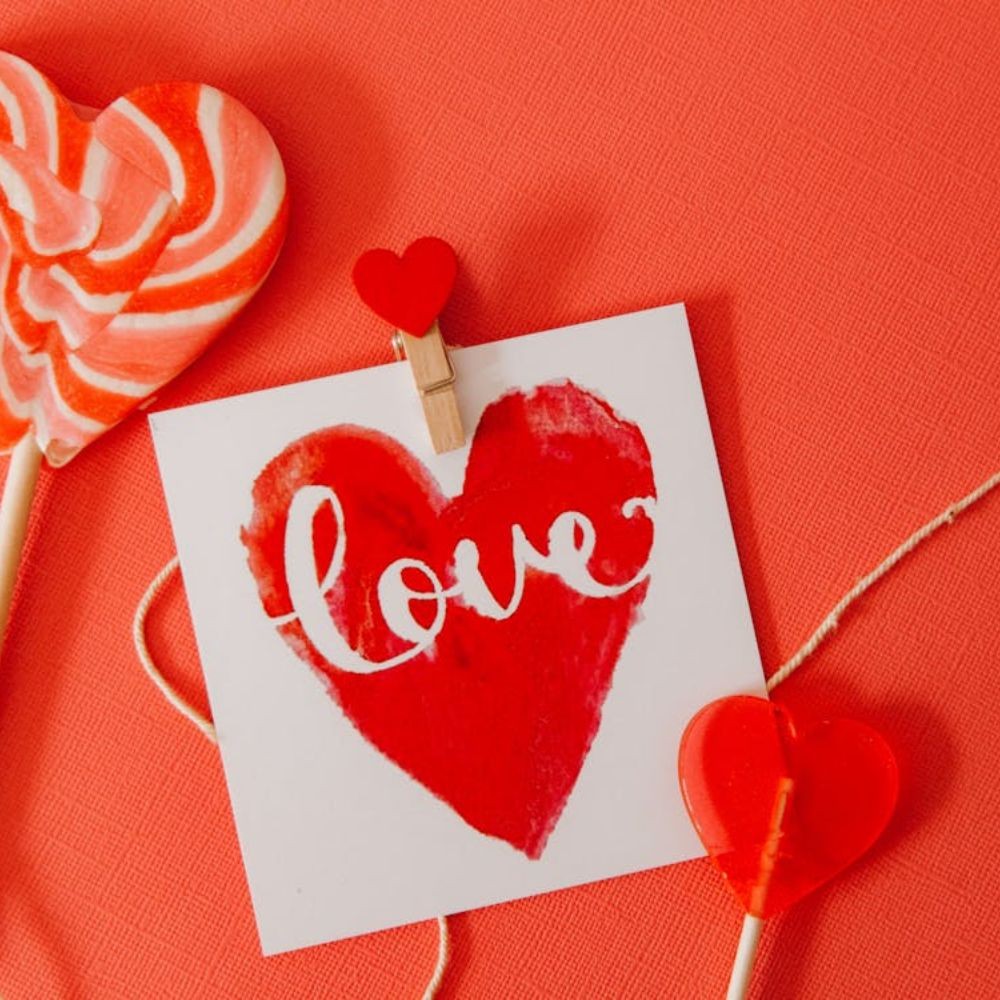Dating Vs Relationship: Know the Differences to Define Your Connection
Discover relationship clarity by exploring the distinctions between dating vs relationship. Scroll down for the insights you seek and to gain the best love experience.

When it comes to the world of romance, navigating the thin line between dating and being in a relationship can often be perplexing. With the ever-evolving dating trends and plenty of dating lingos, evaluating your relationship status is no simple task. Dating vs relationship is a topic that continues to puzzle many. If you find yourself in a situation where you've been spending a significant amount of time with someone, yet you're uncertain about how to define your connection, then you are in for a treat here.
Distinguishing between the two can be challenging due to the subtle and intricate nature of their differences. However, understanding the distinctions between these two stages is crucial for gaining clarity and insight into the status of your connection. If you're currently facing uncertainty about your relationship status, don't worry - this article is here to guide you. Keep reading to delve into the contrasting features of dating and being in a promising commitment to make informed decisions about your romantic journey.
What Is Dating?

Dating refers to the process of engaging in romantic or potentially romantic interactions with another person. Dating with someone can range from casual outings and getting to know each other to more serious and romantic relationships. It serves as a way to determine compatibility, build a foundation for a potential partnership, and explore romantic feelings and attractions. For some individuals, dating involves the desire to connect with someone of the opposite or same sex. It can involve activities such as going to the movies, taking a stroll, or simply heading out for a date. The purpose of dating is to spend time together, foster conversation, and create opportunities to build a connection and explore potential romantic interests.
It is important to note that during the dating phase, no commitment is involved between the lovers. It is a mutual understanding that both parties are exploring the connection without an explicit commitment. Physical intimacy can also be a part of the dating experience. However, it does not signify a full-fledged relationship.
What Is a Relationship?

A relationship is a deeper and more committed connection between two or more individuals. It goes beyond the initial stages of dating and involves a greater level of emotional, social, and often physical intimacy. In a relationship, there is typically a mutual understanding and agreement to be exclusive, with both individuals working towards building a long-term love partnership. The progression from casual dating to officially acknowledging each other as boyfriend and girlfriend marks a smooth transition in the relationship. It signifies a mutual understanding and commitment to a more exclusive and defined partnership. This transition often occurs when both individuals feel a deeper connection and are ready to publicly acknowledge their commitment to each other. A relationship involves shared experiences, trust, communication, and a commitment to support and care for one another.
What is the Difference Between Dating And Being in a Relationship?
1. You Spend More Time Together

The most common difference between dating and a relationship is the amount of time spent together by both lovers. When two individuals consistently dedicate a significant portion of their time to each other and prioritize each other's company, it often indicates a deeper connection and commitment. It shows that both partners genuinely enjoy each other's presence and actively choose to spend their time together. This level of consistent and intentional togetherness is often a characteristic of a more established and serious relationship, with a desire for emotional closeness, shared experiences, and building a stronger bond. It demonstrates a mutual investment in nurturing the relationship and suggests a willingness to prioritize each other's needs and desires.
2. You Both Become Exclusive
One of the indicators that can differentiate dating from being in a committed relationship is the shift in your interest toward others. In dating, it is common to explore multiple potential partners and keep your options open. However, when you enter into the world of committed relationships, you often find your interest getting declined in checking out other partners. Your focus becomes more centered on your partner, and you may lose interest in seeking out new romantic interests. This change in interest signifies a deeper level of emotional connection and exclusivity in a committed relationship.
3. It’s All About Mutual Vulnerability

When seeking an answer to the question are we in a relationship or just dating, analyzing the level of sentimental openness can clear your doubts. Emotional connection is a significant factor in distinguishing between dating and being in a relationship. In a relationship, there is typically a deeper emotional bond that goes beyond surface-level interactions. Partners in a relationship share personal thoughts, feelings, and experiences with each other. There is a sense of trust and vulnerability, allowing for open and honest communication. Emotional support is also a key aspect of a relationship, where both individuals are there for each other during challenging times and offer empathy, understanding, and encouragement. This level of emotional intimacy sets relationships apart from casual dating, where the emotional connection may not be as profound or established.
4. You Both Decide Future Plans
Future plans play a crucial role in discerning the difference between dating and being in a committed relationship. When you start discussing and envisioning a future together, including long-term goals and aspirations, it signifies a higher level of commitment. Making joint plans, such as discussing career plans, travel goals, or even considering living together, demonstrates a shared vision and a willingness to build a life together. This forward-looking mindset indicates a deeper commitment and a desire to invest in a lasting relationship. It goes beyond the scope of casual dating, where the focus is typically on the present rather than plans as a couple.
5. You Introduce Them Socially
Introducing your partner to important people in your life, such as friends and family is a significant sign of transitioning from dating to being in a committed relationship. Introductions to loved ones indicate that you value your partner's presence and want them to be a part of your social circle and support network.
6. You Shift Your Priorities
When you enter a secure, and more intimate relationship, your priorities naturally transform. Your partner and the relationship itself become significant focal points in your life. You find yourself investing more time, energy, and attention into nurturing and maintaining the relationship. Other aspects of your life may take a backseat or be adjusted to accommodate the needs and desires of the partnership. This shift in priorities reflects a deeper commitment. It highlights the evolution from a more casual dating mindset to a more dedicated and intentional approach to building a long-term connection.
What Are the Different Stages of a Relationship?
Stage 1: The Stage of Attraction And Dating

When you are dating someone, this initial phase seems like the most happening period of any connection. There is a powerful sense of physical and emotional attraction between the lovers. It's a period of excitement, butterflies in the stomach, and intense feelings of infatuation. The focus is primarily on exploring the chemistry, building rapport, and determining if there is potential for a deeper connection. This stage sets the foundation for the subsequent stages of the relationship.
Stage 2: The Crisis Stage
It refers to a period when the relationship encounters significant difficulties, conflicts, or external stressors that test the strength and resilience of your love affair. After a few months of dating, the initial honeymoon period typically starts to fade, and the initial rush of feelings begins to diminish. This marks a crucial stage where challenges can arise as you delve deeper into getting to know your partner. It is during this tricky phase that a clearer understanding of each other and the relationship emerges. The initial infatuation gives way to a more realistic view, allowing you to see each other's strengths, weaknesses, and compatibility more clearly. This stage presents an opportunity to navigate potential conflicts, communicate openly, and work towards building a stronger foundation for the relationship.
Stage 3: The Stage of Decision-making

If you have successfully navigated the crisis stage, then half of your problems take a backseat. As you emerge from that challenging period, you often gain valuable qualities such as patience. In this stage, there is a greater level of understanding and acceptance of each other's flaws and differences. This stage allows the relationship to evolve and flourish. During this stage, the couple evaluates the future of their relationship and makes important decisions. These decisions may include moving in together, getting engaged or married, starting a family, or making long-term plans together. The stage of decision-making often involves thoughtful discussions, considerations of individual and shared goals, and a mutual understanding of each other's desires, needs aims, and goals.
Stage 4: The Stage of Exclusivity And Commitment
In this stage, your dating relationship status takes a route of a more committed and loving one. This is the stage where both individuals have made a conscious decision to be exclusive to each other and prioritize the relationship above other potential romantic interests. They may choose to define their relationship as boyfriend and girlfriend, partners, or any other mutually agreed-upon title. This stage involves open communication about expectations, boundaries, and long-term goals, ensuring both partners are on the same page. A deeper level of emotional investment has been experienced during this stage and focuses their time, energy, and attention on nurturing the relationship. The stage of exclusivity and commitment often brings a sense of security and stability to the relationship. It deepens the emotional connection, as both individuals invest more deeply in building a future together.
Stage 5: The Stage of Profound Affection

The stage of profound love is a significant milestone in a relationship, where a deep and enduring love has developed between the partners. It goes beyond infatuation and superficial attraction, evolving into a profound emotional connection. During this stage, the couple experiences a profound sense of love, care, and understanding for one another. There is a deep level of intimacy, trust, and vulnerability, where partners feel safe to fully be themselves. They make an effort to know each other’s dreams, fears, and flaws. Additionally, they accept and cherish each other unconditionally. Partners support and encourage each other's personal growth and development, and they share a deep level of emotional and physical intimacy.
This stage requires ongoing effort and nurturing to sustain profound love. It involves effective communication, empathy, and continued acts of love and appreciation. Through mutual commitment and dedication, the stage of profound love allows the relationship to flourish, bringing both partners a sense of fulfillment and joy. Even though the differences between dating and relationship are noteworthy, is crucial to admit that both experiences play a valuable role in understanding your long-term desires as a couple.
Conclusion
So, it’s clear that when you find yourself devoting more time to your partner beyond dates and outings, along with swears and commitment, it's likely that you have transitioned from dating to a full-fledged relationship. This shift signifies a deeper level of emotional connection and shared dedication. However, understanding the disparities between dating vs relationship is just not important to analyze your relationship status. Whether you're seeking a casual dating experience or a more promising relationship, knowing these distinctions also helps you to set expectations while saving you from hurt and burnout.
Beyond making you evaluate your current situation, it further makes you assess your needs and desires and where you want to see the relationship in the long run. By understanding the future of your romantic journey and where you currently stand, you can align your intentions and expectations, paving the way for a more fulfilling and harmonious relationship path.

Exclusive Relationship: Meaning And Signs You’re in One





 JOIN OUR WHATSAPP CHANNEL
JOIN OUR WHATSAPP CHANNEL





































































